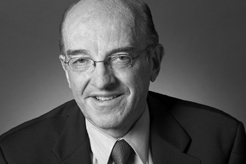5 Ways The FCC Has Failed Consumers (And One Way To Fix It), From A Former FCC Commissioner
Former FCC commissioner Michael Copps has a long history of trying to support consumer interests. He has been an outspoken critic of media consolidation for many years. Back in 2011, he was the lone dissenting vote on the Comcast/NBC merger and recently, he’s been calling on the FCC to reclassify broadband ISPs and fix net neutrality ASAP.
In a long but fascinating essay this week at the Columbia Journalism Review, Copps is calling on journalists and the FCC alike to step up their game. He begins, “For more than a decade I occupied a front-row seat watching government policy undermine your profession and our democracy,” before describing how in his time at the FCC he “saw first-hand how my agency’s decisions limited [journalists’] ability to accomplish good things.”
The whole essay is worth a read but in short: how, according to Copps, has the FCC helped the situation become so dire for the American consumer?
1.) The FCC has been far too gung-ho about consolidation. When all of the newspapers, the radio stations, and the TV stations are owned by a tiny handful of organizations, that’s a problem. Copps cites Sinclair, ClearChannel, Tribune, and News Corp. as examples of once-small operators who now control huge swaths of the news media in the United States. It hurts reporters and consumers, as “combined, downsized, or eliminated newsrooms” result.
And then, of course, there’s the recent Comcast/Time Warner Cable agreement. Like many others, Copps thinks that one is a bad idea.
2.) Political change has fueled a rampant contest for control of TV. Citing the Supreme Court’s Citizen United decision of 2010, Copps says that “billions of Super PAC and dark money dollars” are now flowing through the TV marketplace–not just as advertising dollars, but as bids to buy the stations themselves.
And how many stations are we talking? Lots. “Nearly 300 stations worth over $8 billion changed hands last year alone, up 367 percent in value from 2012,” Copps writes, adding that the FCC has also recently approved major transactions involving the Tribune, Sinclair, and Gannett media companies.
3.) The internet isn’t that good at distributing news yet. While Copps agrees that yes, the internet is an open platform with wide reach, it’s still a tough place for a reporter to make a living. Investigative journalism takes time and money, and not that many online-only outlets have been able to spare the resources to support that level of research and writing.
The internet still will “produce more revolutionary changes in the news,” Copps says, but it’s not there yet–and the path it’s currently on isn’t sufficient. The biggest reporters of in-depth news are still the papers… outlets that, as mentioned above, are also producing less news than they once did.
4.) American broadband stinks. Consumerist readers kind of know this already. American consumers are paying more for their broadband than our global neighbors, generally, and all those dollars are buying us slower speeds and less reliability than much of the rest of the world sees. That doesn’t just hurt consumers, Copps argues; it hurts the whole nation, even on an economic level:
Broadband is the critical infrastructure that will fuel 21st century jobs, health, education and democracy, just as roads, bridges, railways, highways, and rural electricity fueled the earlier growth of our nation. But until we develop a sense of mission to bring high-speed, low-cost broadband to everyone —no matter the particular circumstances of their individual lives—the future will belong to others.
5.) The FCC really screwed up by not classifying broadband ISPs as infrastructure back in 2002. As net neutrality has fallen, Copps and others have called on the FCC to rectify their decade-old slip as quickly as possible. Theoretically, it could be a simple change. In reality, Copps notes, “Armies of lobbyists and wheelbarrows of money stand in the way,” and the current FCC has an uphill battle against it.
But! There are ways the FCC can fix it all. Copps ends by pointing out that the FCC has the authority and the means to stand up for consumers in the face of business demands. The first step? Turning down merger proposals that hurt the public interest. And second, the FCC needs to design and implement a “credible broadcast licensing system” to deal with broadcast networks.
It’s not all on the FCC, though: Copps also calls on the media to make a point of covering and drawing attention to the consolidation and evaporation of their own industry.
Almost three years ago, Copps told Consumerist:
I’m very concerned about what’s happened to news and information in our society. I think this is one of the most important aspects of the broadband revolution for us to consider. If our democracy’s town square is going to be paved with broadband bricks, we have to make sure everybody has access to it, that they can get there, and that it’s informed by the news and information that people need in order to make intelligent decisions for the future of their country.
If the situation has changed at all since 2011, it’s only gotten worse. Perhaps the current FCC commissioners and chairman Tom Wheeler will take Copps’s call to heart.
From the desk of a former FCC Commissioner [Columbia Journalism Review]
Want more consumer news? Visit our parent organization, Consumer Reports, for the latest on scams, recalls, and other consumer issues.


